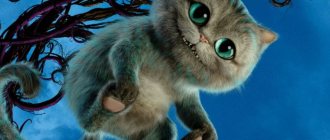More and more wonderful!
- It’s getting weirder and weirder! More and more wonderful! More and more curious!
L. Carroll, "Alice in Wonderland"
So, Chinese economic “miracles”. I will write briefly.
Firstly , there is no socialism in China at the moment (it did not exist there for long, just over 20 years). Now this is not only NOT socialism, it is full-blown capitalism in its third stage - imperialist.
“For old capitalism, with the complete dominance of free competition, the export of goods was typical. For modern capitalism, with the dominance of monopolies, the export of capital has become typical” - V.I. Lenin, “Imperialism as the highest stage of capitalism.”
At the moment, China is witnessing not only the “export of goods,” but also a powerful investment expansion of capital. Over ten years - about $350 billion with a huge growth rate.
China as an investor is unusually active - Europe, USA, Africa, Latvia. America. It got to the point that American enterprises began to massively reject applications from Chinese investors, arguing that “this violates the economic security of the United States.” Africa has long been dependent on the Chinese “socialist investor”, where he pours his financial rivers with a specific calculation. Southeast Asia is the default. That is, China is the main competitor of the United States in the world in the export of capital and has a clear and sharp course in this direction. It is the United States that accuses China of “imperialism” - it vigilantly sees “the speck in someone else’s narrow eye,” although the “speck” is drawn to the log. By the way, the Chinese do not invest in Russia; they obey American sanctions. And that's great.
Secondly, China is a “wolf in sheep’s clothing.” Hiding behind the ideas of socialism, in fact, China has long been a vassal of big Capital.
Since the time of the Chinese Opium Wars, this country has been controlled by the Rothschild clan, who “entered” this “raspberry” and “made a clean-up” by bribing the elites. I previously wrote two posts on the topic “Opium Wars,” but they disappeared along with the previous version of the site. In principle, there is a lot of information on this topic; it is easy to read about the insidious actions of the British East India Company in China (and the consequences this caused).
In the 30s of the twentieth century, China's gold reserves were cleared by the United States. Acting through Japan, starting in 1931 - when Japan began to show aggression against China (invasion of Manchuria), the Americans forced (“convinced”) China to transfer its gold reserves to the United States (of course, for “security purposes”). Instead of gold, which the Chinese had been collecting for more than a thousand years (including works of jewelry), the Chinese people received a package of pieces of paper - gold deposits.
China has now bought a gold storage facility, guess where? - of course, in London, the headquarters of HSBC (Hong Kong and Shanghai Banking Corporation) has moved there.
Thirdly, there was no “economic miracle”. Nationalization in China began in 1952. About 80% of enterprises were nationalized, with former owners becoming directors. Enterprises were not literally seized, they were forced to become corporatized and sell a controlling stake to the state. By the end of the 50s, the land was almost completely nationalized and distributed among the peasants. The collectivization of farms was total.
At the end of the 70s, when the Bretton Woods (gold exchange system) was replaced by the Jamaican currency system, the very “revival of China” began - that is, with amendments to the IMF Charter. Because from about the same time, the Rothschilds (focused on gold and having lost their positions) began to invest heavily (with the consent of the party elite) in the industry of China and opened their headquarters there. This is how China began to be drawn into the system of servicing the world cartels.
After the death of Mao Zedong, Deng Xiaoping came (1976). In 1982, the Chinese Constitution was adopted, which actually protects private property (the Protection Law was adopted in 2007). Since the mid-80s, China has adopted a number of laws on the corporatization of state-owned companies. enterprises. Initially it was a "cross-ownership" of each other's shares. Further, conditions were developed for three types of shareholders - state, legal entities and individuals. By 1998, 80% of Chinese enterprises had been privatized.
So answer me - where is “socialism” here?
- Rosochka, I finally got through to the reception of our Odessa mayor and asked: “Where are we going as a whole country?”
- And what does he have to do with that...
- So far we have only been able to answer where exactly I am going...
Currently, 2/3 of Chinese enterprises are private. The remaining 1/3 half consists of investors' capital. Land is the property of the state (unlike Russia), peasants are not its owners. The country has a hukout , i.e. social system provision is tied to the place of birth of a person - “city-village”. This severely limits people's "freedoms". It also somehow does not fit with socialist principles.
So, the industrial zone of large cartels, to the detriment of its ecology, with the help of ultra-cheap labor, has been working hard for global capital for almost 40 years. Naive observers attribute the results of this activity to the achievements of the socialist economy. But this is a myth. In addition, Chinese capitalism is completely dependent on sales markets - Europe and the USA. The vulnerability of this type of “national economy” is clearly demonstrated now - the sales market will close, and China will also fall silent. Our country’s dependence on the world market now, after the shameful “surrender” of the USSR, is raw material exports, China’s is commodity exports, and the USA’s is foreign exchange. Horseradish is not sweeter than radish. Hello to Comrade Stalin, a man and citizen who gave his life to create a Soviet almost autonomous economic system of the national economy with a solid backed ruble and public appropriation of profits (as opposed to the current predatory pseudo-market one imposed on us). This system was socialist, occupying first place in Europe and second in the world according to key indicators (for which the USSR collapsed).
In any case, the market for goods is not unlimited, plus it is limited by effective demand. Cheap slave. power has also become not so cheap - that is, the cost of Chinese goods has increased, and the market has become saturated with them. But capitalism requires constant expansion. Therefore, the “miracles” will soon end... It is unrealistic to develop the domestic market to such enormous volumes. China will not risk switching to a usurious model, because it understands that it will be immediately destroyed (despite the fact that the yuan has become a reserve currency). Let me remind you that the basket of major reserve currencies, among others, is distributed among the 5th national. currencies:
American dollar - 41.7%
Euro - 30.9%
British pound sterling - 8.1%
Japanese yen - 8.3%
Yuan - 10%
This only means that China is settling accounts with its trading partners of its national. currency. Third countries do not use the yuan for payments among themselves. China itself will not allow this yet (!) - the Chinese elites, although corrupt, even sitting on two chairs (socialist and capitalist), understand the whole risk of the yuan becoming a world currency - these are, first of all, the difficulties of controlling it, and also the need for a transition from the industrial type of capitalism to financial (example of the USA). That is, the Chinese elites understand that dependence on the market for goods will be replaced only by dependence on the area where the yuan circulates, while they will have to forget about industrial potential. But they are not ready for this for a number of reasons. The real industrial sector of the economy, firstly, will not forgive them for this, and secondly, it simply will not allow it yet. But recent events - rumors that the Shanghai Stock Exchange may merge with the London Stock Exchange - suggest that on the brink of a cliff, China may yet choose a financial model of capitalism. State According to official data, China's debt today is about 300% of GDP. If we take into account the “parallel” financial operations can be safely multiplied by 2. That is, such a fantastic debt can force Chinese “pseudo-socialism” to move to a full-fledged third stage of imperialism.
3601 Forward to a friend
to bookmarks
The performance Alice... Getting weirder and weirder
The play begins with Alice lying on the grass in the garden and notices the White Rabbit, who is in a hurry somewhere, constantly glancing at his pocket watch. The girl decided to follow the unusual animal and saw the rabbit disappear into some hole. Alice followed him and fell into a deep hole. Her fall lasted a very long time and ended in a huge hall. This is where Alice's adventures begin.
Waking up in a huge hall in which there was no one, Alice was so upset that she began to cry. Her tears very quickly turned into a huge lake, and she began to drown. In my opinion, this situation is presented in an unusual way when Alice is drowning, but not alone, but in the company of a mouse. The mouse is very charming and unusual. Many moments of the story of the kind, brave Alice were very interestingly played out, how she met new friends on her way and how she learned a lot of new things for herself. The moments when Alice becomes either big or small are well played out in the play. Such fairy tale heroes as the Caterpillar, the Queen of Hearts, the White Rabbit, the Mouse, the Hatter, and the Cheshire Cat are interestingly presented. The Cheshire Cat is one of the most charming characters in the play. This smiling, mysterious and constantly disappearing cat simply cannot leave the viewer indifferent. The girl ends up at a tea party with the March Hare. The Mad Hatter was here too. The Hare and the Hatter made Alice laugh and were very inhospitable and rude. Therefore, the girl quickly left their society. The play also shows how Alice ends up in the garden of the Queen of Hearts. And at the end of the play, Alice woke up in the same meadow where she first saw the Rabbit. It turns out that she only dreamed about this whole trip. The performance is musical, the characters of the fairy tale sing and dance, which delights the audience. Children and adults were very impressed by the animated statues at the beginning of the performance. In general, during the course of the play there was a lot that surprised and evoked warm feelings of empathy for the main character Alice, which helped the audience perceive her adventures. The musical and dramatic theater A-Z is small, chamber, designed for approximately 50 spectators. The foyer is very cozy, although quite small. But the performance of the artists makes you forget everything that is around, and immerse yourself in the miracles and fabulous transformations of the fairy tale. The lighting in the performance was very well done; even the children noted in their reviews that they really liked the special lighting effects. Light plays a very important role in the performance and helps the authors convey their unusual directorial ideas to the audience.
I liked the performance for its musicality, unusualness, and special effects. Children from five years old will find it very interesting.
Quotes from the book "Alice in Wonderland"
"Alice in Wonderland" is an amazing work that is filled with wise thoughts and quotes. Sometimes people do something, and then, having received the result of their work, they are dissatisfied. Or when a person encounters difficulties in life and does not know why they were sent to him.
Alice says that everything has a meaning. Every action and deed has a moral. When something happens in a person’s life, one must be able to find the meaning of why it was sent to the person, for what purpose. Don't dwell on the bad. Bad thoughts will lead you into even greater apathy. Look for positive meaning, even if it seems that there is none. Make up your mind, trick your brain, but don’t stoop to negativity.
If every person minded his own business, the Earth would spin faster.
You have to run as fast as you can just to stay in place, and to get somewhere you have to run at least twice as fast!
Few people find a way out, some don’t see it even if they find it, and many don’t even look for it.
You can't do what you can't do.
Think about the meaning, and the words will come by themselves.
Just think that because of some thing you can shrink so much that you turn into nothing.
She had absolutely nothing to do, and sitting idle, you know, is not an easy task.
I've seen cats without smiles, but a smile without a cat...
She always gave herself good advice, even though she didn't follow it often.
You know, one of the biggest losses in battle is losing your head.
Everything has its own morality, you just need to be able to find it!



